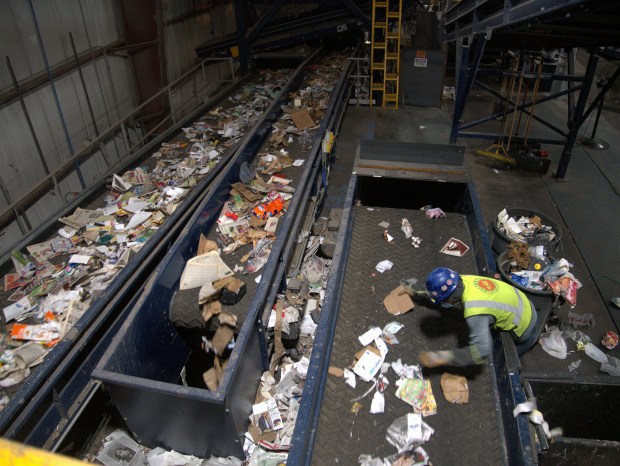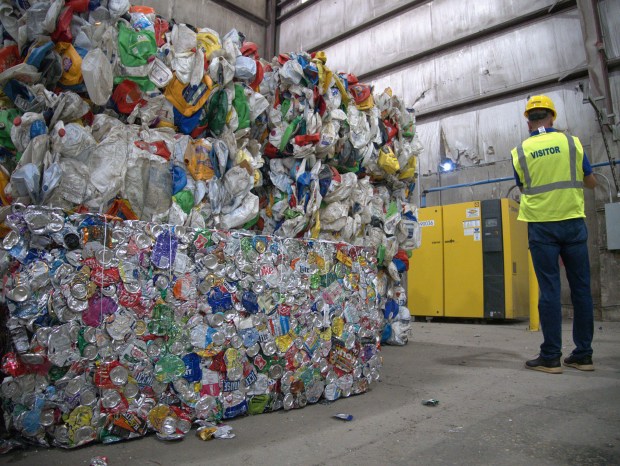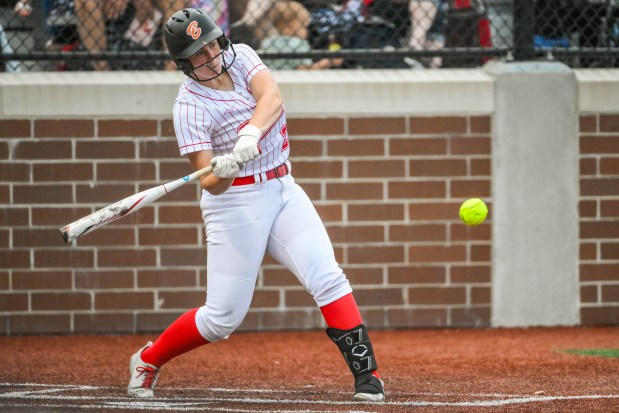Where there are recycling bins, there are sometimes people claiming they go to the same landfill as regular household garbage. But, officials said, that is definitely not the case in Lake County.
Of the roughly 1 million tons of municipal waste generated in the county every year, about 40% is recycled or composted, they said.
Walter Willis, executive director of the Solid Waste Agency of Lake County, said he wants to dispel the somewhat common myth.
“We continue to hear the undercurrent of people wondering if recycling is actually happening; whether it just ends up in the landfill,” he said. “That needs to be debunked. It’s real, and that material has value.”
For some municipalities, the types of materials that can be recycled will be increasing. Lake County recently expanded its existing recycling program with Hefty ReNew, a partnership with Reynolds Consumer Products that specifically accepts hard-to-recycle plastics, such as wrappers, foam takeout containers and plastic bags.
Last week, local municipal officials were given a tour of Lakeshore Recycling Systems’ Northbrook Material Recovery Facility at 2300 Carlson Drive, where 15 tons of recyclable material, including from Lake County, is processed every hour. The facility will also be accepting materials from the new Hefty program.
Specialized equipment
Garbage trucks dump materials on the facility’s tipping floor, where it is then fed into a series of machines. The large-scale machinery and specialized equipment shift, shake, and screen the tons of material that comes through, processing about 150 tons a day.
Several machines use high-speed cameras that watch the material as it flies by, and when it detects a certain type, shoots a burst of air to separate them. Others utilize magnetic fields to attract and repel materials, such as using eddy currents to cause aluminum cans to launch off a conveyor belt. Throughout, workers watch conveyor belts to check for contamination.
After being sorted, the recyclables are compressed into bales and sold. Josh Connell, cofounder of LRS, took pride in their ability to cleanly sort materials. When done right, it’s a profitable industry, he said.
The plastics being accepted by the Hefty program were previously unrecyclable at the LRS facility, Willis said, and would become tangled in machinery.
“This will cut down on the amount of film that gets into equipment. They literally have to shut down some of their lines and cut it off because it just wraps around things,” he said.

With a million tons of waste generated a year, even small increases in recycling could mean hundreds of tons of material avoiding the landfill, Willis said.




